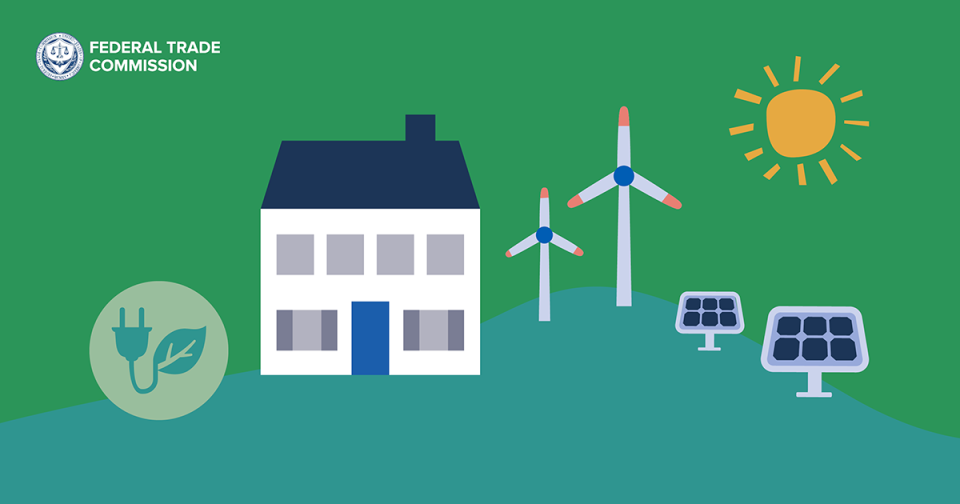Solar energy and other high efficiency home improvements can help reduce energy consumption and lower utility costs for homeowners. As going solar or using clean or renewable energy gets more popular, bad actors have joined the movement, too. Be aware of solar energy scams – everything from scammers pretending to be affiliated with the government or utility company to businesses misrepresenting the cost of improvements, savings, and financing options. If your company offers solar energy, remember that claims must not only be truthful, but also comply with established consumer protection laws, including the FTC Act and the FTC’s new Impersonation Rule.
Be truthful. Every clean energy company has a responsibility to be honest and upfront with consumers. Be transparent about what you’re offering. Disclose the total cost for your product or service, be clear about financing options, and don’t overpromise cost savings that might come through tax credits, rebates, or incentives. Legitimate businesses help consumers make informed decisions about whether powering with solar or clean energy is right for them. So share FTC resources about protecting against deceptive practices, point people to the Department of Energy’s guide for homeowners and commonly asked questions, or share the Department of Treasury’s guidance on clean energy. Remind prospective customers that while tax credits, rebates, and incentives might be available for solar purchasers who qualify, offers for “free” or “no cost” solar panels are scams.
Comply with the law: old and new. Reputable companies know the importance of being honest about what they’re offering – and how much it costs. It’s not only good business, it’s the law. That’s one lesson from the case the FTC and the state of California brought against Ygrene Energy Fund, a company providing home improvement financing through Property Assessed Clean Energy (PACE) loans. The FTC and California alleged Ygrene deceived homeowners about financing home improvements, trapping them with liens that made it hard to sell their homes. The settlement required Ygrene to dedicate $3 million dollars to help remove those liens placed on without consumers’ consent and provide monetary relief to the people impacted. That’s a reminder to all businesses selling clean energy systems and offering related financing: violations come with a price. And, in addition to existing laws, pay attention to new regulations and initiatives like the CFPB’s Residential Property Assessed Clean Energy Financing Proposed Rule to ensure sensible safeguards apply for consumers seeking PACE and other clean energy loans.
Report solar and clean energy imposters. The FTC’s Impersonation Rule is good news for legitimate businesses and consumers, alike. The rule applies not only to government imposters – like those who misrepresent their affiliation with the government and tell tall tales about free or no cost solar energy to make sales – but also to those who misrepresent that they’re affiliated with, endorsed, or sponsored by legitimate businesses. If you spot imposters like these, or scams of any kind related to clean energy systems, tell the FTC.

